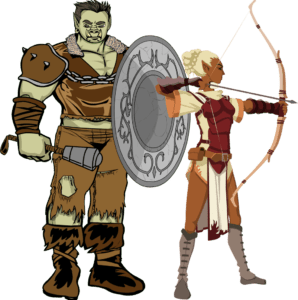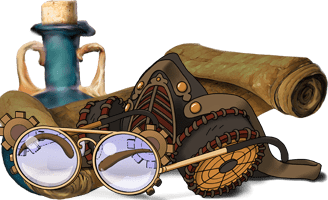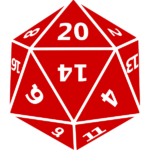Elves and Orcs: Building Cross-Cultural Relationships (Critical Success)
In most fantasy literature since Tolkien, elves and orcs live at constant odds with each other. Among other reasons are their cultural differences and their inability to see each others’ viewpoints. Elves typically live for a millennium, whereas orcs have shorter lifespans than humans. Time alive, both how long it’s been and how long one expects to have left, changes perspective.
Even on a human level, I see this play out. Teens tend to feel like they have unlimited time, and depending on how their formative years have played out, that can mean unlimited possibilities or a sense of hopelessness. The older I get, I expect to have less years remaining than I’ve already had, so I feel a sense of urgency to accomplish my dreams, whereas others my age or older have given up.
Either way, we can learn from each other, and that’s something I love about my D&D group, which ranges in age from teens to 40’s. Unlike many games and sports, D&D and other tabletop role-playing games are cooperative and depend on players working together toward a goal. They have to help each other and use teamwork, and those different perspectives they bring to the table help to give them success.
But more than just success in the game, they build relationships. Teens benefit drastically from multiple positive relationships with adults besides family, teachers, and clergy, not that I’m discounting those by any means. They need adults who choose to spend time with them out of mutual respect instead of perceived obligation. (Yes, parents, teachers, and clergy are usually in those positions in the first place because they care, but that’s not always the teen’s perception.) Correctly managed, D&D can foster those multigenerational relationships based on the collaborative work and mutual respect that lead to success in the game.
Promoting those relationships is remarkably simple and boils down to two principles: encouragement and common ground.
When a teen experiences encouragement from adults communicating to them that they’re lovable, capable, and worthwhile, it builds their self-worth and helps cement those relationships. Adults can communicate this by asking the teens for help and complimenting them on their accomplishments. They also experience support when they find others experiencing the same feelings, even in different circumstances (common ground). At the same time, this helps adults recognize the unique contributions that teens bring. And all of this comes from sincere care and camaraderie.
While I’ve specifically focused on adult-teen relationships here, these same principles apply to any number of cross-cultural relationships, whether racial, socio-economic, political, or any other dynamic, even if all participants are the same generation.
Recent publications of D&D materials have moved toward breaking down in-game racial boundaries, which the Caphora campaign setting did from its inception, and if we’re to get stronger in real life, we can follow this example. Maybe elves and orcs can respect each other after all.










 Get 10 Free Adventures
Get 10 Free Adventures
Comments
Elves and Orcs: Building Cross-Cultural Relationships (Critical Success) — No Comments
HTML tags allowed in your comment: <a href="" title=""> <abbr title=""> <acronym title=""> <b> <blockquote cite=""> <cite> <code> <del datetime=""> <em> <i> <q cite=""> <s> <strike> <strong>